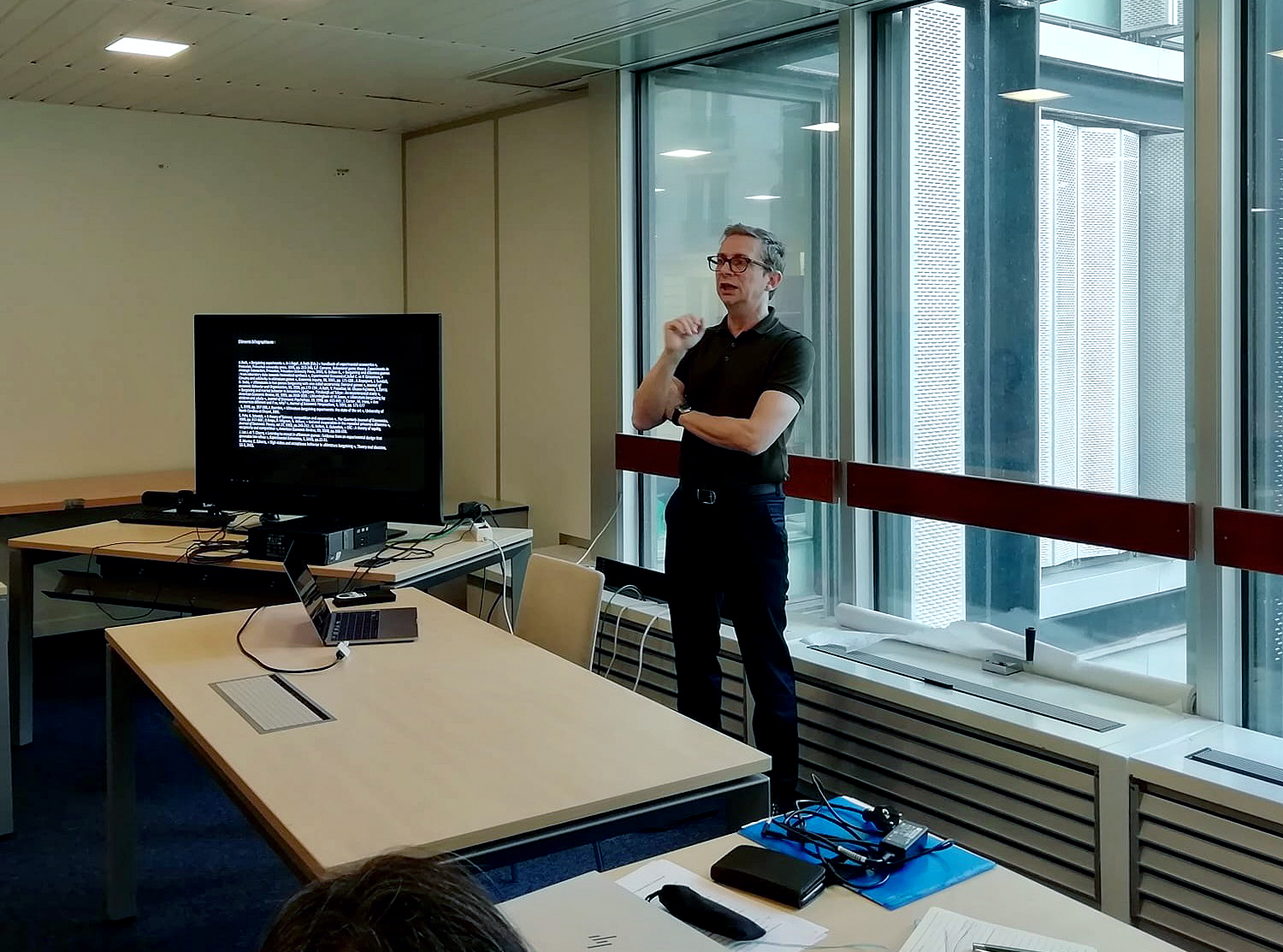The conference, titled “Extreme thinking, critical thinking: Challenges of education” was held at the The Norwegian University Centre in Paris and was part of the multiple events organized by the European Project CLAE II. Main responsible for the organisation of the seminar was University of Stavanger and the French project group.
The objective of the conference was to spread the project results and the intellectual output in France. The target groups were French universities and educators, journalists, French educational authorities.
Introduction
In the introduction to the conference, it was pointed out that since 2017, the CLAE I project had brought together researchers and teachers who, together, were seeking to implement teaching methods that encourage the development of critical thinking in schools.
At the same time, in January 2022, a commission of experts, chaired by sociologist Gérald Bronner, submitted an official report to the French President entitled “Enlightenment in the Digital Age”, which aimed to “measure and understand the dangers that digital technology poses to national coherence and our democracy “.
The seminar “Extreme Thinking, Critical Thinking: Challenges for Education” would be an opportunity for researchers from different disciplines, personalities from civil society and high school teachers to meet. They would have the opportunity to discuss the educational and societal challenges that democratic systems (in the first-place teachers) are facing today in the face of the rise of populism and more generally in the face of a certain form of radicalism in the public space where debate and confrontation of ideas seem to be becoming more and more difficult.
In the seminar it was presented several fundamental questions such as “What are the characteristics of extreme thinking and those of critical thinking?”, “How can the school encourage the development of critical thinking?”, “What kind of challenges do teachers face in teaching critical thinking?”, “Do we need to rethink the school of the 21st century? How?”.

Program
Professor Alexandre Dessingué, from University of Stavanger, Norway, where he teaches history, cultural memory, history didactics and critical thinking, opened the conference with his presentation “Introducing critical thinking in schools: challenges and opportunities, the example of the CLAE project.
Professor Dessingué presented some of the results and observations from the CLAE project and from the numerous meetings with the teachers associated with the project. He was seeking to answer the questions of “how can we understand critical thinking in the educational setting?” but also “what teaching methods and models seem best suited to the development of critical thinking?”
Then Professor Gérald Bronner, specialist in cognitive sociology and professor of sociology at the University of Paris, member of the National Academy of Medicine, the Academy of Technology, the University Institute of France, and the editorial board of L’Année Sociologique, had a lecture titled “Extreme thought, critical thought”.
In his books, L’empire des croyances (2003), La Démocratie des crédules (2013) and Apocalypse cognitive (2021), he deals with the formation and disappearance of collective beliefs, rumors, ideology, religion or magic, and with human cognition. They have played an important role in the sociological awareness of the dangers that threaten democracy at a time when the Internet is a breeding ground for relativism.
After lunch, the next presenter was Vibeke Knoop Rachline, a Norwegian journalist and author based in Paris. Her subject was “Extreme thinking, critical reporting: how to report in journalism and writing?”. She has been confronted with terrorism and radicalization many times in her work. In her book from 2019, “Terror i Europas hjerte” (Terror in the Heart of Europe), she notably investigated in Molenbeek, Belgium, and then followed the trial in Paris of the perpetrators of the November 13, 2015, attacks.
Last post on the program was a roundtable discussion with teachers who had participated in the CLAE project. The teachers started the discussion by presenting their reflections from the CLAE project and from the day, and through dialogue, questions, and answers all seminar participants contributed to the discussion.
Outcome
The project results were presented to well-known researchers in the French university sector and to a Norwegian author and journalist living in France.
French teachers contributing to the seminar
Anne-Sophie Maison, teacher, and CLAE project participant, Collège Notre-Dame-des-Dunes, Dunkerque
Catherine Sellam, teacher, and member of the CLAE project steering committee, Collège Guilleminot, Dunkerque
France Reynaud, teacher, and member of the CLAE project steering committee, Van Hecke College, Dunkirk
Hans Erik Bugge, teacher-researcher associated with the CLAE project, University of Stavanger, Norway
Ludivine Bouquet, teacher, and CLAE project participant, Collège Notre-Dame-des-Dunes, Dunkerque
Marie-Caroline Vaesken, teacher, and CLAE project participant, Guilleminot College, Dunkirk
Marie-Sophie Légier, teacher, and CLAE project participant, Looweg middle school, Crochte
Mylène Dreyer, teacher, and participant in the CLAE project, Guilleminot middle school, Dunkerque
Peggy Maillasson, teacher, and CLAE project participant, Guilleminot middle school, Dunkirk
Sophie Huyge-Tiprez, teacher, and CLAE project participant, Guilleminot College, Dunkirk
Lecturers:
Alexandre Dessingué, professor, University of Stavanger, Norway, where he teaches history, cultural memory, history didactics and critical thinking,
Gérald Bronner, teacher-researcher, University of Paris La Sorbonne, and member of the working group “Esprit critique” of the Scientific Council of the Ministry of National Education
Vibeke Knoop Rachline, Norwegian journalist and author based in Paris.
Comments
Elena Pasquinelli, researcher associated with the Jean Nicod Institute, EHESS-ENS-CNRS and member of the working group “Esprit critique” of the Scientific Council of the Ministry of Education should have contributed at the seminar but unfortunately she was prevented from participation. The title of her planned lecture was: “Educating to critical thinking. Experience and productions of the working group “Critical thinking” of the Scientific Council of the French Ministry of Education
Due to risk management and covid 19 restrictions it was not possible to invite many external participants to the conference.
